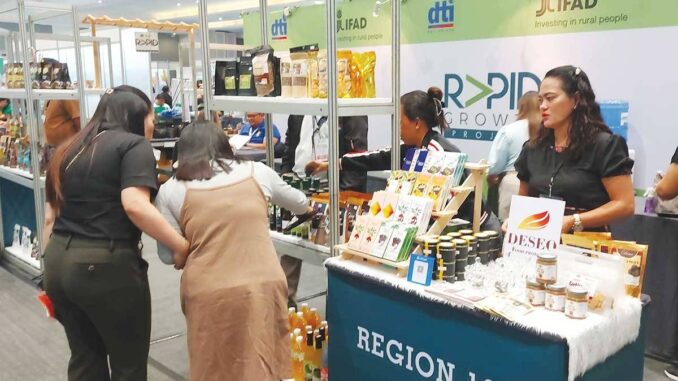
THE Philippines is pushing for the retention of a protocol in the free trade agreement (FTA) in the Association of Southeast Asian Nations (Asean) that will protect sensitive agricultural products in the country such as rice and sugar.
During the Asean Economic Ministers (AEM) Meeting and Related Meetings in Vientiane, Laos, from September 16 to 22, Trade and Industry Undersecretary Ceferino Rodolfo conveyed the Philippines’ request to keep the special consideration for rice and sugar with the ongoing review of the Asean Trade in Goods Agreement (Atiga).
“The Philippines is not requesting its retention as a trade-restrictive instrument but rather to uphold our commitment to our stakeholders that their concerns and sensitivities are addressed accordingly,” Rodolfo has said during the first day of the meeting.
TRADE EXPO Local products from Mindanao are on display at the Davao Agri Trade Expo 2024 exhibit hall at the SMX Convention Center in
Davao City on Sept. 20, 2024. PNA PHOTO
In the current protocol, importing countries of rice and sugar products are eligible to suspend preferences provisionally and without discrimination when the volume of imports is causing or threatening serious injury to the local industry.
Moreover, the Philippines vowed to uphold its commitments to Atiga, especially in eliminating barriers and facilitating smoother trade flows in the region.
Rodolfo said during the AEM meeting that the Philippines launched the full issuance and acceptance of e-Form D this year. This is the first e-documents exchanged through the Asean Single Window.
“All Asean member states should work together to avoid actions that increase burdens and costs for consumers and businesses, particularly micro, small and medium enterprises,” he said.
Under Atiga, 2 percent of tariff lines are excluded from the liberalization. Tariffs of excluded lines range from 5 to 35 percent.


Be the first to comment